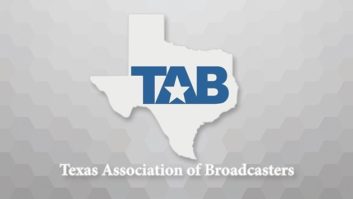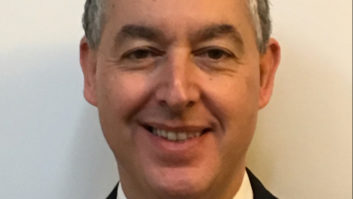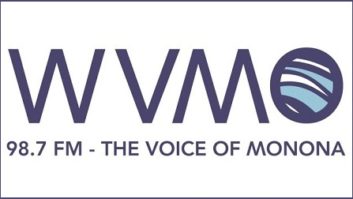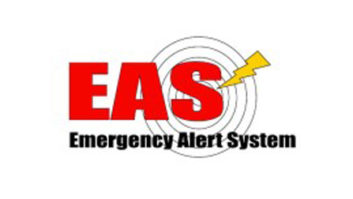COLE’S LAW
Presumably in an effort to demonstrate how dedicated to ‘localism’ it is, the FCC apparently will enforce the public-file rule with a vengeance.
Only a few months ago, the FCC was getting lambasted by just about everybody – citizens, members of Congress, pundits, you name it – for abandoning the concept of “localism” in connection with its multiple ownership rules.
So what does the commission do? In October it whacks a couple dozen radio renewal applicants with fines for public — file violations in an in — your-face move that effectively snarls, “Yeah, we’ve got your localism, we’ve got it right here.”
How did we get to this point? What should licensees do in light of the FCC’s new interest in “localism”? What does it all mean?
To understand the recent fines, we have to go back to the 1980s, when the commission adopted the “post-card renewal.” Before then, a triennial renewal process involved a long-form application that required the compilation and submission of boatloads of detailed information about each station’s operations.
In a hail of deregulatory rhetoric, the commission abandoned that “long-form” approach in favor of a simple postcard with a limited number of “yes/no” questions. It all seemed so easy.
But, as some observers warned years ago (including Team Cole’s Law, in these very pages in 1995), the seemingly easy “yes/no” questions set up a trap.
Time and place
For example, one question on the renewal form asks the renewal applicant to certify that “the documentation required (by the commission’s public-file rules) has been placed in the station’s public inspection file at the appropriate times.” Of course, the desirable answer to that question is “yes,” meaning that the applicant can certify that it has fully complied with the public-file rule.
But wait a minute. The public — file rule requires that the licensee prepare and place in its public file a significant number of different items at different times over the course of the eight — year license term. There are quarterly programs/issues reports, biennial ownership reports, EEO reports, correspondence from the audience, etc., etc.
So in order to be sure that your “yes” answer is, in fact, accurate, you would have to know for sure that all of those materials were in fact placed in the file at the correct times. That means that, even if your file does happen to contain 32 separate program/issues reports, you would have to be sure that each one was placed in the file by the applicable deadline, and the applicable deadlines would stretch back over eight years.
Can you really be sure that they were put in on time?
And what happens if, being the diligent type, you look through your public file before answering the question on the form, and lo and behold, you find that maybe one or two of the quarterly program/issues reports have gone missing, even if you’re pretty sure that they were placed in the file way back when, when they were supposed to be?
As tempting as it may be simply to answer “yes” to the public file question on the form, that “yes” answer carries with it an awful lot of baggage that should be tied down before you commit to it.
And let’s just say that you do make the effort and learn that, oops, you are missing one or two quarterly reports. What do you do? Again, the proper approach would appear to be to answer “no” on the renewal form, providing along with that answer an explanatory exhibit describing the nature of the omission and the steps taken to correct it. That would be the honest approach.
Fines
And that’s what at least 28 renewal applicants did last spring. And what did the commission do? It fined them each $3,000 for admitted public-file violations. The commission did not seem to care that some of those stations admitted to relatively extensive omissions, while others lacked only one or two reports.
Ominously, the commission explained that the $3,000 fines reflected a $1,000 “downward adjustment” from the standard fine for public-file violations, an adjustment based on the “voluntary disclosures of the violations.” This suggests that if a licensee was not as honest and failed to mention one or another omission from its public file, and if the FCC were to find out about both that omission and the licensee’s failure to mention it, the fine could be subject to an upward adjustment. A worse scenario would be if the FCC were to uncover public file omissions and then determine that the licensee affirmatively chose not to tell the FCC about those omissions. Such misconduct could be viewed as misrepresentation or lack of candor, the penalties for which can be significantly greater than a $3,000 or $4,000 fine.
What, then, should you do when your renewal application comes due?
Prep
First and most obvious, you should be sure to gather as much factual information as possible. If there isn’t any violation, you should have nothing to worry about; but you should review your files carefully enough to be certain that you are not, in fact, in violation.
If, on the other hand, you do uncover some information that makes a “yes” answer to the public-file certification question uncertain, you should consult with your communications counsel, providing him or her with all available information and working with counsel to develop an appropriate response.
It may be that you will end up ‘fessing up, like the 28 folks who got fined did. In that case you would likely be fined, but probably no more than $3,000. It may be that you can legitimately answer “yes” to the certification, but still include an explanatory narrative exhibit that lays out what you know, so that the FCC can’t accuse you later of withholding inculpatory information. It is unclear how the FCC might handle such an approach.
One thing you definitely should do, no matter what you have done in the past, is to get a firm handle on what the local public-file rule requires. If you do not have a detailed list of the materials that must be in the file and the deadlines by which they should be placed in the file, your communications counsel should be able to provide you one quickly.
Get that list, double-check it against what you already have in the file and develop internal procedures and tickler mechanisms to assure that you do not overlook future deadlines for placing additional materials in the file.
It would also be handy to maintain a public-file log in which you record what you place in the file and when. That way, the next time your renewal rolls around, certification of compliance with the rules should be a breeze.
Localism
But that raises another question: Will there be a “next time”? Recall, while the “yes/no” question was on the renewal forms in the mid-1990s round of renewals, the commission did not spank everybody with fines, as it is doing now.
Why, then, is the commission cracking down now? According to Media Bureau Chief W. Kenneth Ferree, the crackdown is “consistent with FCC Chairman Michael K. Powell’s initiative to promote and protect localism in broadcasting.” Sound familiar?
Since the first of the year, when the drumbeat over the new ownership rules became deafening, the commission has attempted to justify those rules on the basis of a concern for localism. To many, that approach has bordered on Orwellian Newspeak.
So now, presumably in an effort to demonstrate how really, really dedicated to “localism” the current FCC is, it has singled out the public-file rule as a crucial element in a station’s service to the public. And it’s going to enforce that rule with a vengeance.
Of course, analysis of the relationship between the public-file rule and the public indicates to some that that rule has virtually nothing to do with the station’s programming service to the public. And we suspect that a survey of all broadcast stations would reveal that members of the public have inspected the public files at only a very, very small percentage of those stations.
And as far as the concept of “localism” goes, we should bear in mind that the public file must be maintained at each station’s main studio – but under the rules, any station’s main studio can be as much as 25 miles from the community of license, and in some circumstances the studio can be twice or even three times farther away.
So you could make a decent argument that the public-file rule is not at all related to “localism” in any meaningful sense.
But the commission apparently needs to make some symbolic gesture to demonstrate to the disbelieving public that it wants to protect “localism,”and it’s convenient to label the public-file rule a linchpin to “localism” and vow strict enforcement in the name of that supposedly sacred concept.
How long will this go on? Certainly for as long as this commission wishes to paint itself as a stalwart defender of “localism.” That desire is in turn likely to last as long as the commission is taking heat for its new ownership rules. Should that particular fracas die down, it is entirely possible that enthusiasm for aggressive enforcement of the public-file rule will cool.
Until then, though, you should assume that public-file violations will be subject to forfeitures, and you should act accordingly.
If you have any questions about the public-file rule or the renewal process, you should contact your communications counsel.










